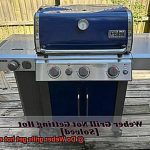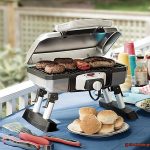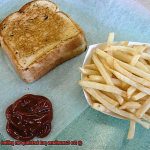Are you a grilling enthusiast on the hunt for the perfect backyard grill? If so, chances are you’ve considered investing in a Traeger grill. And if you have, you’ve probably wondered whether or not it’s necessary to use Traeger pellets on your new grill. Well, we’re here to tell you that the answer isn’t as simple as a yes or no.
Traeger grills have been around for quite some time now and have made a name for themselves thanks to their unique ability to infuse smoky flavor into your grilled dishes. The secret behind this is the use of wood pellets instead of traditional charcoal or gas. But when it comes to choosing those pellets, things can get a bit tricky.
While using Traeger pellets may seem like an obvious choice, there are several factors to consider before making your decision. For instance, do you prefer a particular flavor profile or are you looking for more affordable options? These are just some of the key considerations when selecting pellets for your Traeger grill.
In this blog post, we’ll be diving deep into the question of whether or not Traeger pellets are necessary for your Traeger grill. We’ll explore both the pros and cons of using them and take a look at some alternative pellet options available on the market. Whether you’re new to grilling or an experienced pitmaster, keep reading to find out everything you need to know.
Contents
What is a Traeger Grill?
If you’re a fan of outdoor cooking, you may have heard of Traeger grills. But what exactly are they? Simply put, a Traeger grill is a type of wood pellet grill that uses hardwood pellets as its fuel source. Founded in 1985, Traeger has become a leading manufacturer of wood pellet grills, offering a range of sizes and styles to suit all needs.
So how do they work? The hardwood pellets are fed into a hopper at the bottom of the grill, where they’re automatically ignited by an electric element. The resulting smoke and heat are then circulated throughout the cooking chamber, providing a consistent and flavorful cooking experience that can’t be matched by traditional charcoal or gas grills.
But what sets Traeger grills apart from other types of grills is their versatility. They can be used for grilling, smoking, roasting, and even baking, making them an all-in-one solution for outdoor cooking enthusiasts. And with digital temperature controls, they’re also incredibly easy to use. Simply set your desired temperature and let the grill do the rest.
Of course, there are some potential drawbacks to consider. Traeger grills can be more expensive than other types of grills, and using non-Traeger pellets may void your grill’s warranty and could potentially damage the grill over time.
Do You Have to Use Traeger Pellets on a Traeger Grill?
The simple answer is no, but let’s dive into the details.
Traeger pellets are made from compressed sawdust and come in various flavors like hickory, apple, and mesquite. They work best with Traeger grills and provide consistent flavor and performance. However, they can be more expensive than other brands of wood pellets in the market.
If you’re looking to save some bucks, don’t worry. You can use other brands of wood pellets on your Traeger grill without any problem. But ensure that the pellets you choose are made from 100% hardwood with no fillers or additives. Using low-quality pellets can result in poor performance, inconsistent heat, and off-flavors.
Another crucial factor to consider when selecting your wood pellets is the flavor you want to achieve. Different woods produce different flavors. For example, hickory pellets will produce a bold and smoky flavor while fruitwood pellets will produce a sweeter and lighter flavor.
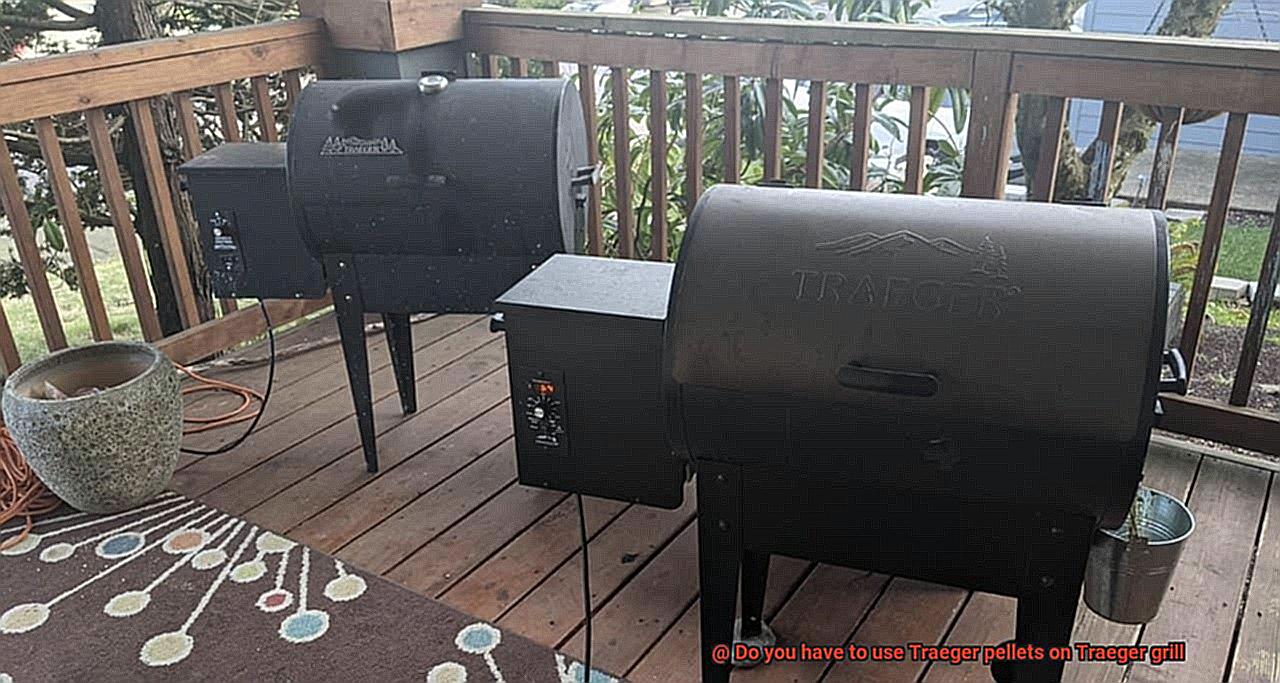
So, what’s the verdict? Ultimately, the decision of which wood pellets to use on your Traeger grill comes down to personal preference and budget. Although Traeger pellets may offer convenience and consistency, other brands of wood pellets can provide similar results at a lower cost. Just ensure that you choose high-quality hardwood pellets that match your desired flavor profile.
Benefits of Using Traeger Pellets
And when it comes to enhancing the flavor of your food, there’s no better choice than Traeger pellets on a Traeger grill. Let me share with you some of the benefits that make Traeger pellets a must-have for any grill master.
Firstly, Traeger pellets are made from high-quality hardwood that imparts a unique and delicious flavor to your food. With a selection of flavors such as mesquite, hickory, and apple, you can experiment with different meats and create an array of mouth-watering dishes to impress your guests.
Moreover, Traeger pellets are designed to work seamlessly with Traeger grills, producing consistent heat and smoke for optimal cooking results every time. These pellets are created to burn cleanly and efficiently, minimizing ash and keeping your grill clean and easy to maintain.
What’s more, Traeger pellets are made from 100% natural materials without any fillers or binding agents. This makes them a safer and healthier option for both the environment and those consuming the grilled food. When using Traeger pellets, you can relish smoky flavors without any harmful chemicals or additives.
Finally, using Traeger pellets is convenient and easy. They come in pre-packaged bags that can be easily loaded into the hopper of a Traeger grill. This eliminates the need for messy charcoal or propane tanks and allows you to focus solely on grilling delicious food. Plus, they ignite quickly, producing consistent heat that makes it easy for even novice grillers to achieve perfect results every time.
Non-Traeger Pellet Brands
Well, you’re in luck because using non-Traeger pellet brands on a Traeger grill is not only possible but can also open up a world of flavors and blends for your taste buds to enjoy. As an expert on this topic, I have compiled some essential tips for you to consider before making the switch.
First and foremost, Traeger grills are designed to work best with Traeger pellets. However, if you prefer non-Traeger pellets for reasons such as availability, price, or flavor options, then there are some factors to consider before making the switch.
The first factor to consider is compatibility. Various non-Traeger pellet brands have different shapes and sizes that may not fit correctly into the auger system of your Traeger grill. Therefore, it’s crucial to ensure that the pellets you choose are compatible with your grill’s auger system.
The second factor to consider is the quality of the pellets you intend to use. Some non-Traeger brands may contain fillers or additives that can negatively affect the flavor and quality of your food. To achieve optimal grilling results, it’s vital to choose high-quality pellets made from 100% hardwood with no additives or fillers.
Popular non-Traeger pellet brands on the market include Pit Boss, Louisiana Grills, and Green Mountain Grills. These brands offer a wide range of flavors and blends that can add a unique taste to your food. So don’t be afraid to experiment with different brands and flavors until you find the perfect match for your taste buds.
Potential Risks of Using Non-Traeger Pellets
While it’s understandable to want to explore all the flavor possibilities, it’s crucial to be aware of the potential risks of using non-Traeger pellets.
Firstly, using pellets that contain fillers or additives can pose a serious risk to your health. These harmful chemicals, binders, and oils are often used to cut down production costs, but can result in unsafe consumption. So if you’re thinking of using non-Traeger pellets, be sure to check the contents thoroughly.
But that’s not all. Non-Traeger pellets may not burn as efficiently as Traeger’s brand, leading to uneven heat and cooking. This can cause undercooked or overcooked food and is a potential hazard to your health. Additionally, uneven heat can result in flare-ups that could damage your grill.
And let’s not forget about the overall taste and quality of your food. Traeger pellets are made from 100% natural hardwoods, providing a specific flavor profile for your dish. Using non-Traeger pellets can result in an entirely different taste, which may not be as desirable.
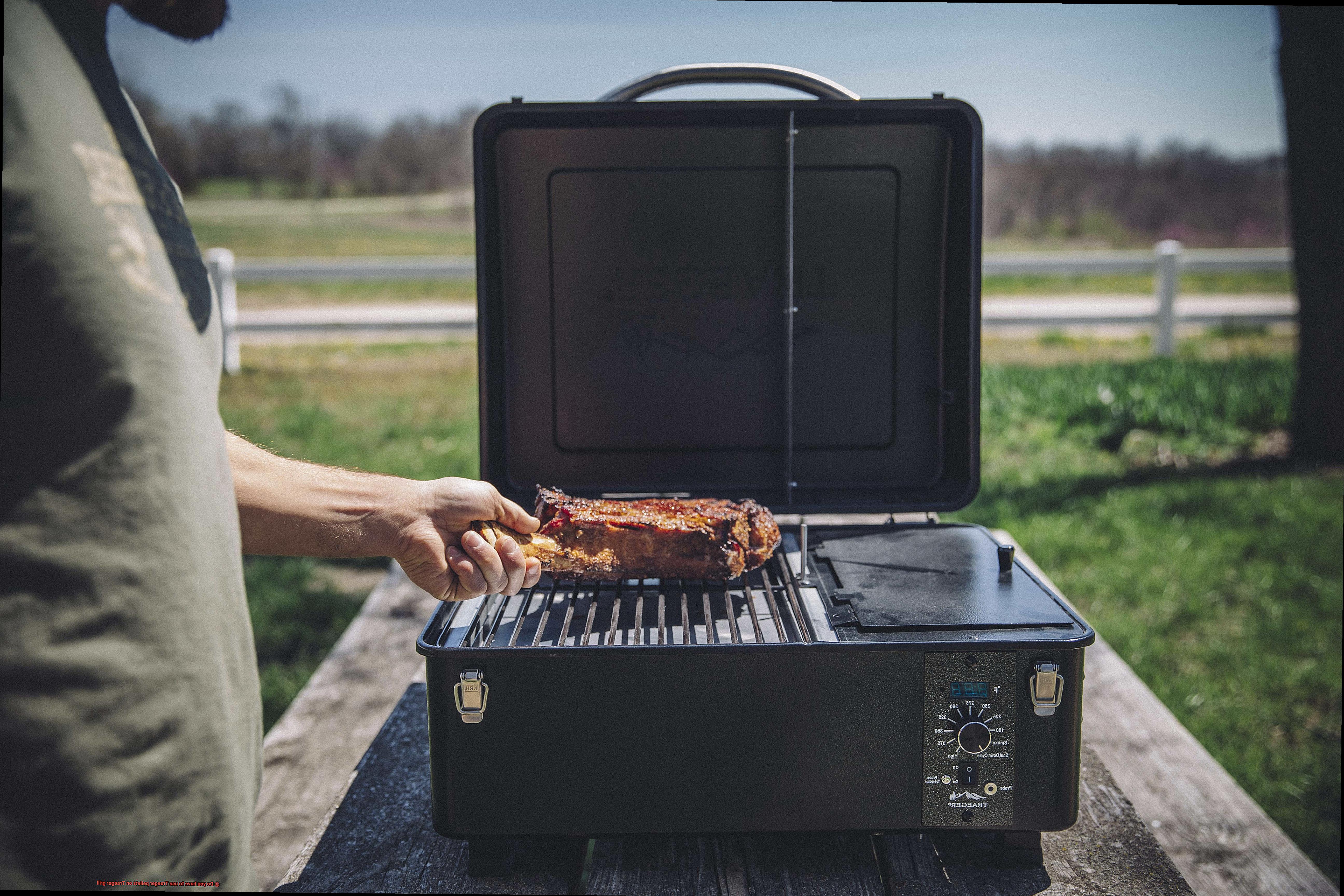
If you do choose to use other pellet brands, make sure they are made from 100% natural hardwoods and do not contain any harmful fillers or additives. It’s also essential to keep in mind that using non-Traeger pellets could potentially void your grill’s warranty.
Flavors Offered by Traeger Pellets
Look no further than Traeger pellets, which come in 9 different flavors that are sure to satisfy any taste bud.
For those who love a strong, smoky taste, hickory and mesquite pellets are the perfect options. Hickory provides a smoky taste that is perfect for red meat and poultry, while mesquite offers a stronger, more robust flavor that pairs well with beef and pork.
If you’re looking for something sweeter, apple and cherry pellets are great choices. Apple provides a mild, fruity taste that complements pork and chicken, while cherry offers a slightly tart sweetness that pairs well with poultry and fish.
For those who prefer a nutty or subtle flavor profile, pecan and maple pellets are great options. Pecan pellets have a nutty flavor that is often used with poultry and vegetables, while maple offers a sweet and subtle taste that is perfect for pork dishes. Oak pellets have a neutral flavor that works well with any type of meat or vegetable.
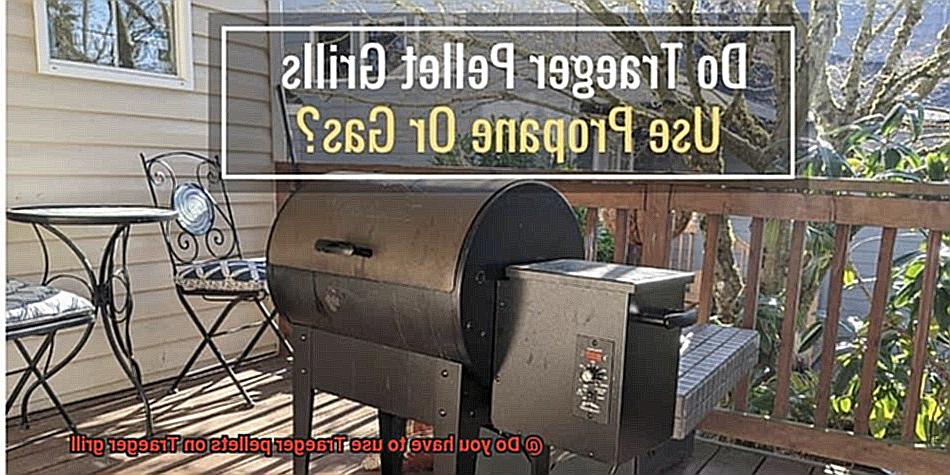
If seafood is your go-to, alder pellets have a mild flavor that is best suited for fish and seafood. And if you’re looking for something versatile that works well with any type of meat, Traeger’s signature blend combines hickory, maple, and cherry pellets to create a well-balanced flavor that will satisfy any taste bud.
It’s worth noting that while Traeger recommends using their pellets on their grills for optimal performance, you can use any type of wood pellet as long as they are the correct size. However, using Traeger pellets will ensure consistent results and the best possible flavor for your grilled food.
Quality Differences Between Traeger and Non-Traeger Pellets
While it’s not mandatory to stick to Traeger pellets, there are some crucial quality differences between Traeger and non-Traeger pellets that you should consider before making your decision.
Firstly, Traeger pellets are made from 100% natural hardwood with no fillers or additives. This ensures that the smoky flavor of your grilled dishes is pure and authentic. In contrast, some non-Traeger brands may contain filler woods or oils that can compromise the taste and aroma of your food.
But that’s not all – Traeger pellets undergo meticulous testing to ensure consistent quality and performance. They’re manufactured to strict standards, which means you can rely on them for even temperature control and consistent burn rates. Other brands may not have the same level of quality control, leading to unpredictable results when grilling.
Moreover, Traeger offers an extensive range of flavors and blends to cater to different tastes and preferences. Whether you’re a fan of bold hickory and mesquite for red meat or prefer sweet apple and cherry for a dessert-like finish to your dishes, there’s a flavor for everyone. Non-Traeger brands may have a more limited selection or may not offer certain flavors or blends that you prefer.
F2NIkpwry8o” >
Conclusion
In conclusion, Traeger grills have taken the grilling world by storm with their unique ability to infuse smoky flavor into dishes using wood pellets as fuel. While Traeger pellets may seem like the obvious choice for use on a Traeger grill, it’s not necessary to limit yourself exclusively to them. Other high-quality hardwood pellet brands can provide similar results at a lower cost while offering a wider range of flavors and blends.
However, it’s crucial to choose compatible pellets that are made from 100% hardwood with no additives or fillers. Opting for low-quality pellets can result in poor performance, inconsistent heat, and off-flavors that’ll ruin your meal. Additionally, non-Traeger brands may not burn as efficiently as Traeger’s brand, leading to uneven heat and cooking.
Traeger pellets offer several benefits such as consistent flavor and performance, ease of use, safety, and health benefits. With nine different flavors ranging from strong and smoky to sweet and subtle, Traeger provides an extensive range of flavors and blends that cater to different tastes and preferences.
Ultimately, the decision of which wood pellets to use on your Traeger grill comes down to personal preference and budget. Whether you choose Traeger or non-Traeger pellets, ensure that they’re made from high-quality hardwoods with no additives or fillers for optimal grilling results.


